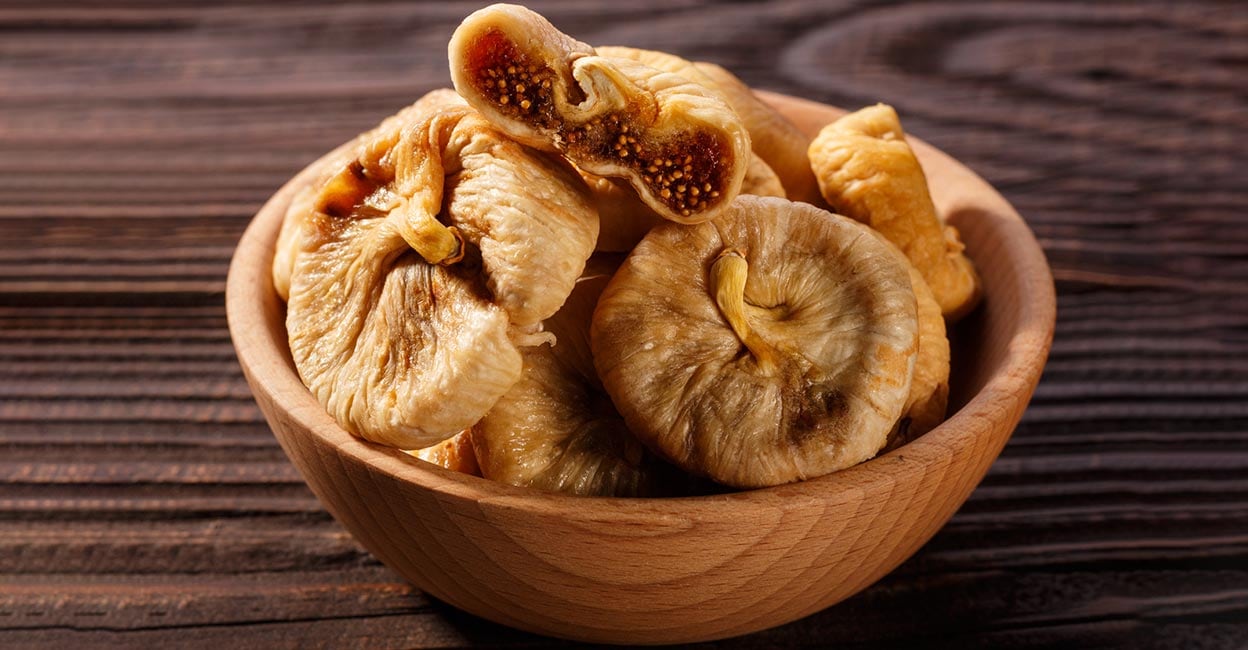Can fruits be non-vegetarian? Social media debates the case of figs

Mail This Article
Figs, one of the world’s healthiest fruits, have been cultivated for centuries and are widely available in bakeries and supermarkets. Known for their rich flavour and nutritional benefits, figs are low in protein and fat but high in carbohydrates, dietary fibre, and sugars like glucose and fructose. They also provide essential nutrients like calcium, iron, magnesium, potassium, and Vitamin K.
Beyond their nutritional profile, fig trees hold cultural and religious significance in Buddhism, Christianity, and Islam. Historically, figs were a staple in ancient Egyptian, Greek, and Roman cuisine. Today, they are primarily cultivated in Egypt, Greece, and the United States.
However, a surprising debate has recently emerged over whether figs can be considered vegetarian. Travel vlogger Shehnaz Treasurywala reignited this discussion in one of her vlogs, explaining the unique pollination process that involves fig wasps.
The fig-wasp relationship: Why some consider figs non-vegetarian
Fig trees rely on a specific species of wasps for pollination. Female wasps enter the figs to lay their eggs, but they lose their wings in the process and die inside the fruit. The fig then uses an enzyme called ficain to break down the wasp’s body, turning it into protein. This symbiotic relationship has led some people to believe that figs are unsuitable for vegetarians and vegans.
However, not all figs involve wasp pollination. Many commercially grown figs, such as the Ficus carica variety, are produced using modern agricultural methods that do not require wasps. These varieties are widely available in supermarkets and are considered suitable for vegetarians and vegans.

Social media reactions
The topic has sparked a heated discussion on social media, with users divided over the implications of fig consumption. On one side, vegetarians and vegans have expressed shock, with some questioning whether they should reconsider their dietary choices. Others, however, have countered that the process is natural and doesn’t compromise the vegetarian status of the fruit.
One user pointed out the distinction between different types of figs, writing, "That's the reason education is important. You are talking about Umber, which is the cluster fig. Anjeer is the common fig. That's why Hindus avoid eating cluster fig—Umbar trees hold sacred value related to Lord Datta and Vishnu and are significant in religious rituals. In ancient Ayurveda, it holds a separate place. So, humble request: don't spread misinformation."
Another user addressed misconceptions, saying, "The amount of misinformation in this video is mind-boggling. The crunchy parts are not wasps—they are the seeds. The wasps get broken down, decomposed, and add nutrition to the fig, much like most other fruits and veggies get their nutrition from the microorganisms in the ground."
Shehnaz Treasurywala’s vlog has amplified the debate, with many users engaging in discussions about fig biology and its religious and cultural implications. While some applauded her for initiating the conversation, others called for clearer differentiation between fig varieties and a better understanding of their pollination process.

Can you eat figs if you are a vegetarian: The verdict
For those concerned about the ethical implications of eating figs, it’s essential to note that most commercially available varieties today are wasp-free. However, this fascinating debate continues to highlight how complex food choices can be in an era of increasing dietary awareness.
Have you reconsidered your fig-eating habits after learning about their unique pollination process? Share your thoughts on social media, where the discussion is still going strong.

